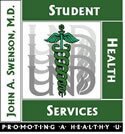|
Stomach Disorders
Irritable Bowel Syndrome (IBS)
IBS is also called spastic colon, nervous bowel, or irritable colon. It is characterized by diarrhea and abdominal cramps. IBS is caused by excessive spasms of the large intestine. IBS is probably the most common abdominal complaint. It usually begins during late adolescence or early adulthood and women are affected twice as often as men.
Major symptoms of IBS include:
- Abdominal cramping
- Gassiness
- Bloating
- Diarrhea
- Diarrhea occurring shortly after eating and/or immediately after getting up in the morning.
Psychological factors may play some role in this condition, so decreasing stress and anxiety levels may ease symptoms. Consuming a diet that contains adequate fiber may also provide relief.
Colitis
Colitis and IBS have similar symptoms, however colitis is more rare and potentially serious. It is characterized by an inflammation of the innermost lining of the colon.
Major symptoms may include:
- Diarrhea containing blood and mucus
- Severe abdominal pain and cramping
- Fever
- Loss of appetite
- Anemia
- Weight loss
Some complications may accompany those suffering from Colitis such as hemorrhage, ulcerative colitis, and an increased risk of colon cancer. Colitis is treated with drugs and a special diet. Surgery to remove all or most of the colon may be required in severe cases or those that are considered very likely to progress to cancer.
Nervous Stomach and Gastritis
People often experience stomach discomfort due to anxiety or stress. Changing the diet to something easier to handle or a bland diet can treat nervous stomach. Using antacids, such as Tums, can also treat this condition.
Nervous stomach may lead to more serious problems such as Gastritis. This is a progression from nervous stomach to a situation in which the stomach wall becomes inflamed and swollen. Treatment for gastritis is the same as for nervous stomach.
Ulceration
An ulcer is an actual lesion in the inner lining of the stomach or of the duodenum, the part of the intestine just below the stomach. When doctors refer to a peptic ulcer, they are talking about ulcers of the stomach and the duodenum. Stomach ulcers are also called gastric ulcers. These lesions usually destroy the protective inner layer of either the stomach or duodenum, reaching down to the middle layer, and exposing underlying tissues to stomach acid. However, ulcers can extend all the way through the stomach.
Peptic ulcers are common: one in every 10 Americans develops an ulcer at some time in his or her life, according to the National Digestive Diseases Information Clearinghouse. Ulcer sufferers may experience stomach pain that is initially relieved by eating, then is worse afterward, or is worse just before eating. Other symptoms include nausea with eating and pain that is localized in the top of the abdomen. Two major causes of peptic ulcer are: 1) long-term use of nonsteroidal anti-inflammatory agents, such as aspirin and ibuprofen; 2) bacterial infection, mainly Helicobacter pylori.
Researchers recently discovered that Helicobacter pylori (H. pylori) causes almost all peptic ulcers, accounting for 80 percent of stomach ulcers and more than 90 percent of duodenal ulcers. H. pylori infection is common in the United States. Most infected people, however, do not develop ulcers. Why H. pylori doesn't cause ulcers in every infected person is unknown. Researchers have found H. pylori in some infected people's saliva, so the bacteria may also spread through mouth-to-mouth contact such as kissing. Most likely, infection depends on characteristics of the infected person, the type of H. pylori, and other factors yet to be discovered
If an ulcer is found, the doctor will test the patient for H. pylori. This test is important because treatment for an ulcer caused by H. pylori is different from that for an ulcer caused by nonsteroidal anti-inflammatory agents. H. pylori peptic ulcers are treated with drugs to kill the bacteria, to reduce stomach acid, and to protect the stomach lining.
For more information, please contact Student Health Services.
Resource Links:
v Loyola University. Irritable Bowel Syndrome. (www.niddk.nih.gov/health/digest/pubs/irrbowel/irrbowel.htm)
v Columbia University. Stomach Disorders. (http://cpmcnet.columbia.edu/texts/guide/hmg22_0010.html)
v Medlineplus Health Information. (www.nlm.nih.gov/medlineplus/stomachdisorders.html)
v National Digestive Diseases Information Clearinghouse. (www.niddk.nih.gov/health/digest/nddic.htm)
 Back to Top 20 Health Issues Back to Top 20 Health Issues
|


